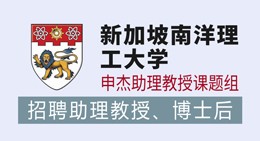当前位置:
X-MOL 学术
›
Clin. Cancer Res.
›
论文详情
Our official English website, www.x-mol.net, welcomes your feedback! (Note: you will need to create a separate account there.)
PI3K inhibitors in hematology: When one door closes…
Clinical Cancer Research ( IF 10.0 ) Pub Date : 2024-07-05 , DOI: 10.1158/1078-0432.ccr-24-0967 Sigrid S. Skånland 1 , Klaus Okkenhaug 2 , Matthew S. Davids 3
Clinical Cancer Research ( IF 10.0 ) Pub Date : 2024-07-05 , DOI: 10.1158/1078-0432.ccr-24-0967 Sigrid S. Skånland 1 , Klaus Okkenhaug 2 , Matthew S. Davids 3
Affiliation
The phosphatidylinositol 3-kinase (PI3K) signaling pathway regulates key cellular processes and is one of the most aberrantly activated pathways in cancer. The class I PI3K catalytic subunits p110g and p110d are highly enriched in leukocytes, providing additional rationale for targeting these PI3Ks in hematologic malignancies. In 2014, the PI3Kd inhibitor idelalisib was the first of four PI3K inhibitors to receive regulatory approval for relapsed B-cell malignancies. This was followed by approvals of the pan-class I inhibitor copanlisib (2017), the dual PI3Kg/d inhibitor duvelisib (2018), and the PI3Kd and casein kinase-1e inhibitor umbralisib (2021). Copanlisib and umbralisib received accelerated approvals, while idelalisib and duvelisib received initial accelerated approvals followed by full approvals. The accelerated approvals were based on overall response rates, however follow-up studies showed increased risk of death and serious side effects. Furthermore, the confirmatory trial with copanlisib failed to show an improvement in progression free survival when compared to chemoimmunotherapy. These developments led to black box warnings for idelalisib and duvelisib, and withdrawal of copanlisib and umbralisib from the market by their manufacturers. Given the uncertain future of this drug class, additional manufacturers terminated ongoing phase III trials with novel PI3K inhibitors. Here, we review the development and current status of PI3K inhibitors in hematology, limitations to their use, and our perspective on whether there is a future for PI3K inhibitors in hematology.
中文翻译:

血液学中的 PI3K 抑制剂:当一扇门关闭时……
磷脂酰肌醇 3 激酶 (PI3K) 信号通路调节关键的细胞过程,是癌症中最异常激活的通路之一。 I 类 PI3K 催化亚基 p110g 和 p110d 在白细胞中高度富集,为在血液恶性肿瘤中靶向这些 PI3K 提供了额外的理论依据。 2014 年,PI3Kd 抑制剂 idelalisib 是四种 PI3K 抑制剂中第一个获得监管部门批准用于治疗复发 B 细胞恶性肿瘤的药物。随后又批准了泛 I 类抑制剂 copanlisib (2017)、双重 PI3Kg/d 抑制剂 duvelisib (2018) 以及 PI3Kd 和酪蛋白激酶 1e 抑制剂 umbralisib (2021)。 Copanlisib 和 umbralisib 获得了加速批准,而 idelalisib 和 duvelisib 获得了初步加速批准,随后获得了全面批准。加速批准是基于总体反应率,但后续研究显示死亡和严重副作用的风险增加。此外,与化学免疫疗法相比,copanlisib 的验证性试验未能显示无进展生存期的改善。这些进展导致 idelalisib 和 duvelisib 出现黑框警告,并导致 copanlisib 和 umbralisib 被制造商撤出市场。鉴于此类药物的未来不确定,更多制造商终止了正在进行的新型 PI3K 抑制剂的 III 期试验。在此,我们回顾了 PI3K 抑制剂在血液学中的发展和现状、其使用的局限性,以及我们对 PI3K 抑制剂在血液学中是否有未来的看法。
更新日期:2024-07-05
中文翻译:

血液学中的 PI3K 抑制剂:当一扇门关闭时……
磷脂酰肌醇 3 激酶 (PI3K) 信号通路调节关键的细胞过程,是癌症中最异常激活的通路之一。 I 类 PI3K 催化亚基 p110g 和 p110d 在白细胞中高度富集,为在血液恶性肿瘤中靶向这些 PI3K 提供了额外的理论依据。 2014 年,PI3Kd 抑制剂 idelalisib 是四种 PI3K 抑制剂中第一个获得监管部门批准用于治疗复发 B 细胞恶性肿瘤的药物。随后又批准了泛 I 类抑制剂 copanlisib (2017)、双重 PI3Kg/d 抑制剂 duvelisib (2018) 以及 PI3Kd 和酪蛋白激酶 1e 抑制剂 umbralisib (2021)。 Copanlisib 和 umbralisib 获得了加速批准,而 idelalisib 和 duvelisib 获得了初步加速批准,随后获得了全面批准。加速批准是基于总体反应率,但后续研究显示死亡和严重副作用的风险增加。此外,与化学免疫疗法相比,copanlisib 的验证性试验未能显示无进展生存期的改善。这些进展导致 idelalisib 和 duvelisib 出现黑框警告,并导致 copanlisib 和 umbralisib 被制造商撤出市场。鉴于此类药物的未来不确定,更多制造商终止了正在进行的新型 PI3K 抑制剂的 III 期试验。在此,我们回顾了 PI3K 抑制剂在血液学中的发展和现状、其使用的局限性,以及我们对 PI3K 抑制剂在血液学中是否有未来的看法。












































 京公网安备 11010802027423号
京公网安备 11010802027423号